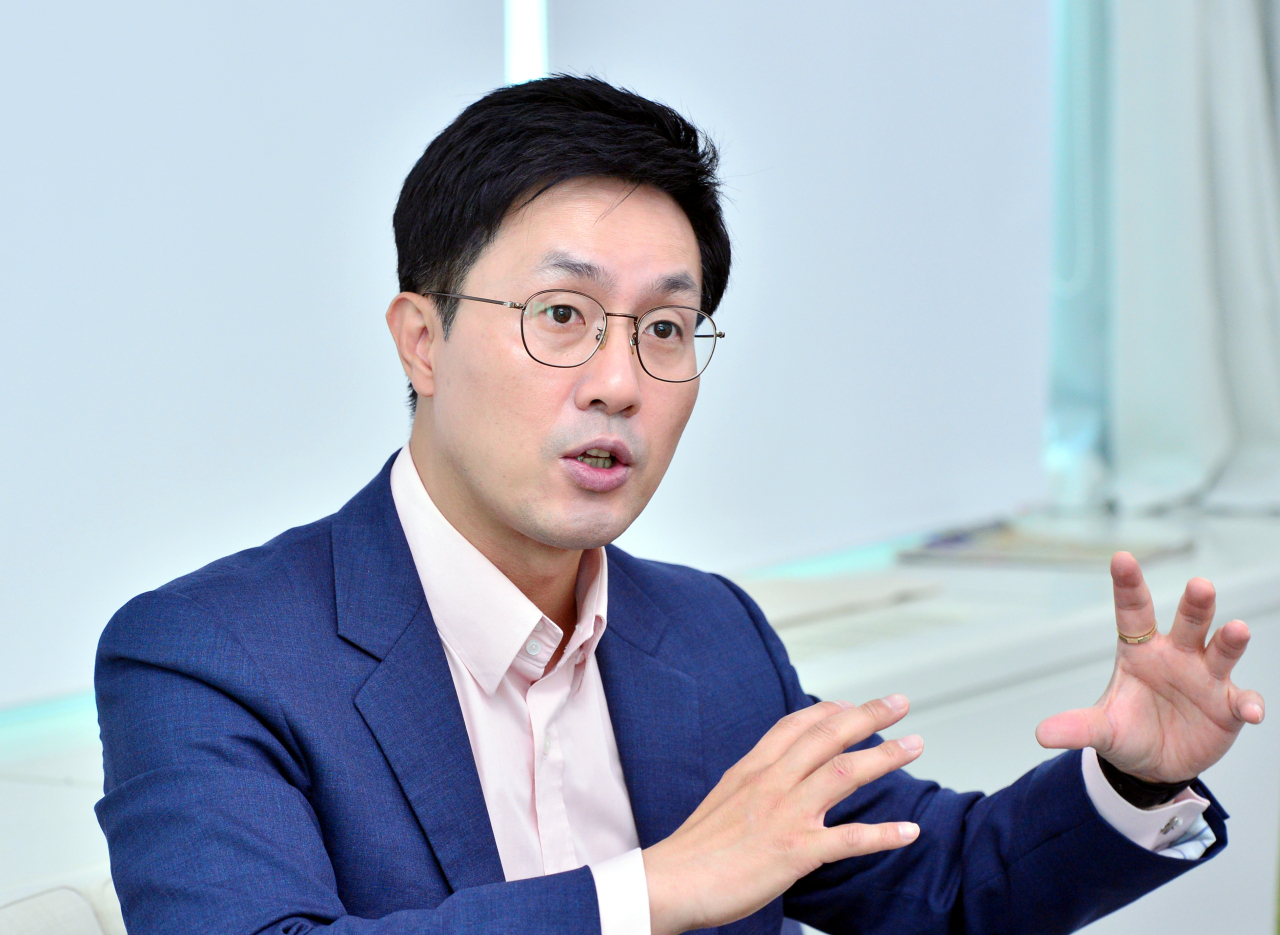 |
Choi Young-jin, managing director, digital strategy division at Hanwha Asset Management, speaks in an interview with The Korea Herald. (Park Hyun-koo/The Korea Herald) |
Hanwha Asset Management, South Korea’s fourth-largest fund manager, is the first financial institution in the country to adopt a remote work system by adding satellite offices in Seoul.
Under its DreamWork policy, some 400 employees and executives of Hanwha Asset are no longer under the same roof, and instead are given an autonomy to navigate the most suitable work conditions each day to boost productivity.
“The underlying philosophy of DreamWork is to give employees the rights to choose the way they work,” said Choi Young-jin, managing director, digital strategy division at Hanwha Asset Management.
“They are given four workplace options: home, Yeouido headquarters, satellite offices in central district of Euljiro and in Gangnam. ... It is up to each individual to decide which option is for them the most efficient.”
The fund management firm with 108 trillion won ($96.9 billion) assets under management is looking to strike a balance between stay-at-home working and office-based working, as remote work environment is becoming a norm fast in the wake of the coronavirus pandemic.
Satellite offices leased from a local shared workspace service firm Fastfive since November provide a more accessible environment to Hanwha Asset’s staff to work with clients such as institutional investors, commercial banks and high-net-worth-individuals. Saving both time and cost of commuting and traveling for meetings with clients is extra, said the 48-year-old executive.
Hanwha’s new work culture is possible because of its use of laptops that ensure remote access via a virtual private network.
Remote work culture in South Korea’s financial industry was rather a difficult choice to begin with due to high regulations that require banks and fund managers to protect their networks from cybersecurity threats.
“The DreamWork policy has to do with equipping ourselves with a technology infrastructure that allows all employees to work with their own electronic devices remotely,” Choi said.
The COVID-19 seems to have been the catalyst behind the introduction of remote work culture, but this efficiency-centered approach was bound to arrive eventually.
Choi claimed that digital disruption in the finance industry is now putting an end to the traditional work culture, and financial institutions slow to react will be pushed to the edge.
“The work culture that has become routine for us, that is to say coming to the same office during regular office hours, stems from the past when farmworkers farmed the land,” Choi said. “We expect employees to embrace the new lifestyle as digital nomads.”
 |
A design concept of shared space “The 50th,” which uses the 50th and 51st floors of the 63 Building. Hanwha Asset Management expects to launch the space in June. (Hanwha Asset Management) |
DreamWork is unlikely to be a temporary project, as Hanwha Asset is already transfiguring part of what used to be its workspace. The fund manager is scheduled to open a two-story space in the 63 Building, its headquarters in Yeouido, for shared working and community-based activities later in June.
Tentatively named “The 50th,” the space is designed to boost direct engagement with its clients including retail consumers.
“This space is open to our clients, but at the same time exclusive for our clients,” he said.
“In the past, compliance issues have prevented retail clients from visiting our headquarters or offices. Now, we are ready to communicate with them.”
Formerly at Hanwha conglomerate’s insurer arm and brokerage unit, Choi now spearheads the asset manager arm’s digitalization effort to break the barrier between the company and investors. Enablers are a mobile app that sells fund products without the help of the fund distribution network, and a studio to host a talk show on its own YouTube channel.
“Technology has allowed us to reach out to financial consumers on our own terms,” he said.
“We no longer perceive the past as normal. Once the (new normal) takes root in us, there is no turning back.”
By Son Ji-hyoung (
consnow@heraldcorp.com)









